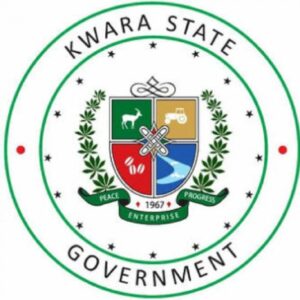
Universal Health Coverage: FG inaugurates self-care coordination committee
Federal Government has inaugurated the National Self-Care for Sexual, Reproductive and Maternal Health (SRMH) Coordination Committee to accelerate the achievement of Universal Health Coverage (UHC) in Nigeria by 2030.
The Permanent Secretary, Ministry of Health, Mr Olufunso Adebiyi, inaugurated the committee in Abuja on Thursday.
The 25-member committee, drawn from the public sector, donors and the private sector, is to ensure the implementation of the National Guidelines on SRMH in Nigeria.
Also inaugurated was the Self-Care Advocacy Network (SAN), aimed at utilising harmonised advocacy messages and approaches to engage in dialogues, share lessons learned and pursue collaborations to advance the cause.
Self-care is the ability of individuals, families and communities to promote health, prevent disease, maintain health and cope with illness and disability with or without the support of a health care provider.
Represented by the Director, Health Promotion, Mrs Ladidi-Bako Aiyegbusi, the Permanent Secretary said self-care is an integral and complementary component of overall health care system and provides benefits which include reduced workload on health care workers.
It also increases access to Sexual and Reproductive Health (SRH) services in a safe and private space, leveraging innovations and digital platforms to access or deliver safe and appropriate health care services.
Adebiyi said that the process of adapting the World Health Organisation (WHO) Guidelines on Sexual Reproductive Health and Rights (SRHRs) commenced with the release of WHO Consolidated Guideline on Self-care Interventions for SRH in June 2019.
He added that Nigeria adapted the guideline through consultative process, culminating in the development of the national guidelines on self-care for SRMH, approved in May 2021 and officially inaugurated in March 2022.
He added that “our roadmap for implementation is a costed plan for the self-care guideline.
“We are deliberate and committed to achieving UHC with tools like self-care intervention, as we systematically engage and disseminate the self-care guideline in over 22 states in Nigeria.
“So far, advocacy and orientation visits have been conducted to Oyo, Kwara, Ogun, Gombe, Bauchi, Enugu, Plateau, Akwa Ibom, Kano, Osun, Ondo, Niger, Cross River, Nasarawa, Rivers, Bayelsa, Adamawa and Edo states and will be carried out in the remaining states of the federation.’’
He added that a monitoring and evaluation framework was being developed on the progress of the implementation of self-care in Nigeria.
The Permanent Secretary assured that the ministry would be strengthening federal-level integration of different self-care interventions across different programmes, including but not limited to Reproductive Health, HIV and Non-Communicable diseases.
“We are inviting states to also ensure coordinated implementation. We must ensure self-care interventions are of quality, while regulatory bodies and key stakeholders continue monitor and build capacity of caregivers to ensure quality interventions.
“We are committed to ensuring Nigerians across all strata of life enjoy the best possible healthcare.’’
The Director, Family Health Department, Mrs Boladale Alonge, said that evidence suggests that self-care interventions for SRHR have the potential to reduce cost to users and the health system through gained efficiencies.
Represented by the Head, Reproductive Health Division, Mr Lawrence Anyanwu, she said that when made accessible and affordable, self-care can support achievement of UHC through less burdened health systems and empowered health care consumers.
“The national guideline on self-care interventions for health provides a foundation for policy reform, intervention scale-up, and continued investment in learning and advocacy to ensure the realisation of the transformative potential of the Self-Care Initiative in Nigeria.”
For the Self-Care Advocacy Network, she said, it is expected to provide opportunity for in-country members to implement the Demand Generation Strategy for self-care.
On his part, Anyanwu, the Chairman of the newly inaugurated committee, pledged members’ readiness to put in their best.



